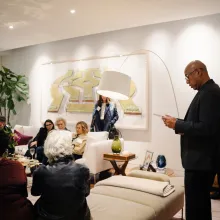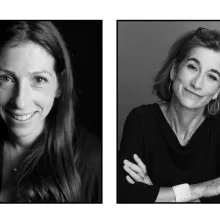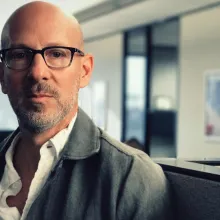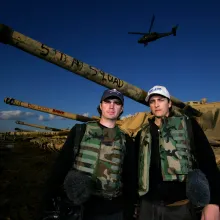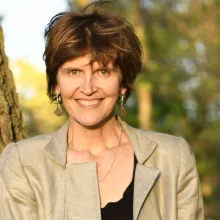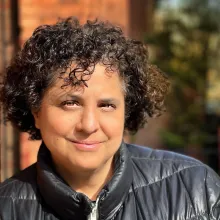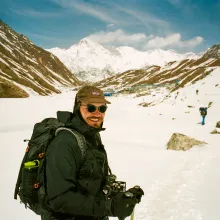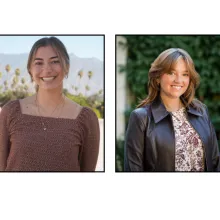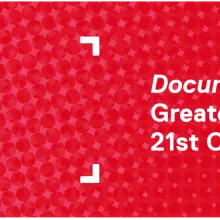Late last year, IDA gathered documentary field leaders and friends, along with our Impact Circle community, at a private home in New York City for an intimate conversation about the state of our field. Raoul Peck spoke. You very likely know his work — including I Am Not Your Negro , which drew from James Baldwin’s writings to make one of the most compelling accounts of race and power in documentary, and most recently Orwell: 2+2=5 , an investigation, via George Orwell, into how authoritarianism corrodes language and reality itself. I’d had the chance to interview Raoul and producer Alex Gibney
Latest Posts
Welcome to IDA Member Spotlight, a monthly interview series highlighting IDA members and showcasing the depth and diversity of our community. This month, we had the pleasure of speaking with Yael Melamede and Hilla Medalia. Hilla Medalia is an Academy Award-nominated and Peabody Award-winning documentary filmmaker, producer, and writer whose work has been celebrated worldwide for its emotional depth, cultural insight, and narrative boldness. She has received six Emmy nominations for her films, and her projects have screened internationally in theaters and on major platforms, including HBO, MTV
Welcome to IDA Member Spotlight, a monthly interview series highlighting IDA members and showcasing the depth and diversity of our community. This month, we had the pleasure of speaking with Joshua Seftel. Joshua Seftel is an Oscar-nominated and Emmy-winning director driven by the conviction that storytelling can promote empathy, connection, and change. That thread can be seen throughout his work, going back over 35 years. His latest documentary, nominated for a 2026 Oscar, All The Empty Rooms (Netflix, 2025), executive produced by Adam McKay and Steve Kerr, follows veteran CBS correspondent
Welcome to IDA Member Spotlight, a monthly interview series highlighting IDA members and showcasing the depth and diversity of our community. This month, we had the pleasure of speaking with Craig Renaud. Craig Renaud and his late brother, Brent (aka the Renaud brothers), are best known for their vérité documentaries that tell the stories of people caught in the middle of conflicts around the world. Brent Renaud was pursuing this very mission when he became the first American journalist killed in Ukraine in 2022. The Renaud brothers learned how to survive in war zones while working with
Welcome to IDA Member Spotlight, a monthly interview series highlighting IDA members and showcasing the depth and diversity of our community. This month, we had the pleasure of speaking with Alison McAlpine. Alison began her career as a published poet, playwright, and theatre director. The success of her commission to write a TV opera inspired Alison to make her first film, the award-winning mid-length Second Sight (2008). The BBC commissioned two versions. Ghostman of Skye (BB2, 2009) was “Pick of the Day” or “Critics Choice” in every major UK newspaper. Cielo , Alison’s award-winning first
Welcome to IDA Member Spotlight, a monthly interview series highlighting IDA members and showcasing the depth and diversity of our community. This month, we had the pleasure of speaking with Rose Arce. Rose develops and produces films for Soledad O’Brien Productions, which elevates untold stories from marginalized communities. For her journalistic work, she was recognized with the Pulitzer Prize, three Emmys, the Peabody, the Cine, and other accolades. Her recent documentary work included the Oscar-nominated films The Devil is Busy (HBO, 2025) and The Perfect Neighbor (Netflix, 2025), which
Jeremy Power Regimbal is an award-winning filmmaker and photographer whose work spans feature films, documentaries, and advertising, with a focus on intimate storytelling and social impact. In his early twenties, Jeremy founded The Lab Magazine , a globally distributed publication built around long-form, unfiltered conversations with cultural icons including Willem Dafoe, Sam Rockwell, Wes Anderson, Marina Abramović, and Noam Chomsky. At 27, he made his feature directorial debut with the psychological thriller In Their Skin (2012), which premiered at the Tribeca Film Festival and was released
Media Consolidation Teach-In Recording Free Press: Teach-in Presentation Slides Community Collected Teach-In Chat resources Started by filmmaker Chithra Jeyaram More about the Netflix Deal MoveOn Slams Netflix The Ankler, “ WB-NETFLIX Breakdown: Layoffs, Movies, TV, More ” Craig Aaron, “ Stop the Merger Madness ” (Pressing Issues, Dec. 5) “ Broken Promises: Media Mega-Mergers and the Case for Antitrust Reform ” (Writers Guild of America West, December 2021) Consolidation is not Inevitable NPR, The Penguin Random House and Simon & Schuster was stopped in 2022 Forbes, Why The Kroger-Albertsons
Welcome to IDA Member Spotlight, a monthly interview series highlighting IDA members and showcasing the depth and diversity of our community. This month, we had the pleasure of speaking with Araceli Seager and Adelaide Burrows. Araceli Seager is a Los Angeles-based emerging documentary filmmaker making up one half of Potential Films. She graduated from Loyola Marymount University in 2023 with a bachelor’s degree in film, television, and media studies; she later earned a master’s degree in screenwriting from Trinity College, Dublin in 2025. She has directed and produced three short
Documentary magazine is embarking on an exciting new project to anoint the 25 Greatest Docs of the 21st Century (so far!). We know we cannot do this on our own, which is why we’re asking all our active IDA members, as well as past and present magazine contributors, to help us compile this list. The last time Documentary attempted such an ambitious project was back in 2007. To commemorate its 25th anniversary, Documentary asked IDA members to vote on the “Top 25 documentaries of all time.” Surprisingly, the results had ten titles from just the first seven years of this century (Michael Moore’s
